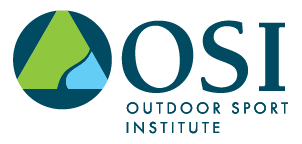Field Notes: Expertise is Overrated
Mike Smith | OSI Executive Director
In 2017 we were looking for new strategies to make equipment accessible in rural Maine. For many years we had run a statewide equipment rental program with varying degrees of success. With trailers full of canoes, kayaks, SUPS, mountain bikes, and over 1,000 sets of cross-country skis, it was difficult to figure out how to transport, maintain, and store everything season to season.
It was even more challenging to figure out how to fairly distribute this gear to communities and organizations across a large geographic area. I would tell colleagues that my free advice was “don’t start a statewide equipment rental program.” It often seemed that the program generated more problems than solutions. You would think running a gear rental program across an entire state would bring some amount of expertise, but all we had was more questions than answers.
At the end of each season our staff would discuss the pros and cons of the program. We knew that the equipment we were providing made some events possible in rural towns that otherwise would never have the chance to come to life. At the same time, we couldn’t deny that it wasn’t sustainable, unless we started charging a significantly higher rental fee, which of course was counter to our goal of accessibility.
Over the years we had seen some community partners organize and assemble their own local caches of equipment. This always felt like a win, because it meant less reliance on our offerings, and shrunk the area we were trying to cover with our gear lending program. It left me wondering, “how can we better support the development of local rental offerings?”
That’s about the time I met Matt DeLaney.
I was in the process of relocating to Millinocket and had been told by some of our partners in town that there was a new local librarian interested in creating outdoor programs. It didn’t take long for Matt and I to be sitting in my kitchen one August morning over a cup of coffee. He shared his vision for a rural community library as a resource for much more than books. I had never considered a small-town library as being naturally aligned with outdoor sports, but as he explained the goal of increasing access to a variety of resources for all members of the community, I was immediately moved.
The Katahdin Gear Library (KGL) didn’t come together that morning (though that would make for a great story). It was a slower beginning. We continued to offer statewide rentals through OSI for another two years, but gradually loaned more and more gear to the Millinocket Memorial Library to pilot a new model for equipment access. It began with bikes, then expanded to skis and snowshoes. We would get together with Matt and talk through the challenges from storage, to maintenance, to insurance. Slowly the program grew.
In the spring of 2019 it was time to make a decision about where we were going to focus our energy. While closing down the statewide rental program would hurt in the short term, we were seeing the promising evolution of the Katahdin Gear Library. It was gaining momentum, preparing to add canoes, kayaks, and standup paddle boards to the mix, and finding more and more support within the community. If we could help bring this model to life, document it, and learn from it, we’d ultimately have something to share with rural communities that was far more sustainable than dropping off a trailer full of gear for a couple weeks.
Fast forward to this past summer, with the support of an amazing team of interns we worked with the Millinocket Memorial Library on an updated business plan that would support moving the KGL into a new location in downtown Millinocket. The goal in 2022 is to increase hours and add new services, like providing regular open workshop hours to kids and adults in the community. (You can help support these efforts and the learning we’ll share from it by following this link.)
So far I think the Katahdin Gear Library has turned out to provide a great deal more than just equipment, but of course I’m biased. It’s worth hearing what others in the community have to say about the impact of this project on their hometown. Earlier this month Outside Magazine published a story on their podcast about the impact of Matt’s vision and the KGL. I encourage you to give it a listen while you digest your thanksgiving meal. Here’s the link.
Recently I was asked to join a call with community stakeholders in small towns in New York and New Hampshire where the idea of a gear library had gained some traction (which we always LOVE hearing). They wanted us to share our “expertise” about gear libraries. When I told Matt DeLaney about this, we both laughed. That’s because neither he, nor I, nor anyone else that’s helped bring the KGL to life feels like an expert. Rather, I think I can speak for everyone when I say we all feel like amateurs, committed to an ongoing experiment.
In fact, this might be the thing we’ve learned most from the Katahdin Gear Library project so far – that at times expertise is overrated. Sometimes what we need most is a willingness to jump in and learn as we go.

